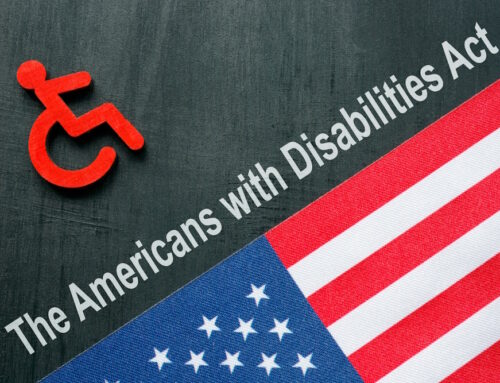A disability lawyer is a legal professional who specializes in disability law and represents individuals filing for disability benefits or appealing denied claims. As navigating disability laws and legal processes can be complicated for non-experts, the expertise of a disability lawyer is crucial for handling a disability case effectively.
With their in-depth knowledge of state and federal disability regulations, experience appealing denied claims, and understanding of medical terminology, a disability attorney can help clients prepare strong cases, increase approval odds for benefits, and avoid adverse decisions. For those dealing with disabling conditions, the services of a competent disability lawyer can make all the difference in gaining access to the assistance they need in their disability claim.
Identifying the Need for a Disability Lawyer
There are several common situations where consulting or hiring a disability lawyer becomes necessary:
Disability Benefits Denial
If your application for Social Security Disability Insurance (SSDI) or Supplemental Security Income (SSI) gets denied, this is when most people seek legal help. Social Security disability claim applications see high denial rates, especially during initial filings. Reasons can range from insufficient medical records to complicated eligibility criteria.
Whatever the reason, you have the right to appeal the SSDI claim decision within 60 days. However, navigating the appeals process alone can be intimidating and difficult. An experienced disability attorney well-versed in disability denial reasons can identify weaknesses in your Social Security disability claim and build compelling arguments to bolster your appeal. With sound legal counsel, your chances of winning the appeal increase substantially.
Appeal for Disability Discrimination
The Americans with Disabilities Act (ADA) protects disabled individuals from discrimination in workplaces and public spaces. If you face discriminatory treatment regarding hiring decisions, workplace accommodations, or accessibility issues, a disability lawyer can help demonstrate how the discrimination violates ADA regulations.
They can represent you in negotiations with employers or building owners, file official complaints to the Equal Employment Opportunity Commission (EEOC), or take legal action if necessary.
Benefits Review
Those already receiving disability benefits may need to periodically undergo medical and financial reviews to evaluate eligibility. These reviews often create anxiety over losing crucial assistance for their medical condition. Lawyers can offer guidance on how to prepare for these reviews.
In case of unjust benefit termination, they can also handle the appeals process and strengthen your case to regain benefits. Their expertise proves invaluable in avoiding wrongful disability denial of entitled benefits.
In all the above scenarios, having a legal expert in your corner levels the playing field and secures your rights.
Researching Disability Lawyers
Once you determine the need for legal counsel, dedicate effort toward researching qualified disability lawyers in your state. Reliable places to find seasoned disability attorneys include:
Online Legal Directories: Comprehensive legal resources like Justial can help you find an experienced disability law firm in your area. Directories allow you to screen attorneys by location, practice area, credentials, client reviews, and more.
State Bar Association Websites: Every U.S. state features an official Bar website, which lists licensed, verified lawyers practicing in the state. Search for disability law practitioners through state bar directories to find a legally authorized law firm near you.
Disability Rights Organizations: Leading disability groups like the Disability Rights Education and Defense Fund (DREDF) and the American Association of People with Disabilities (AAPD) offer lawyer referral services matching clients with qualified disability attorneys.
While researching candidates, check details like years of experience, case success rate, types of disability cases handled, and client reviews. Bar association directories provide confirmation of credentials and disciplinary records, while consultations give insight into suitability for your case.
Steps to Find a Disability Lawyer
1. Identifying Your Needs
The first step is to clarify your particular circumstances and define clearly the legal assistance you require from a disability lawyer. You need to understand the type of claim you will be filing and the process involved, whether it is applying for Social Security Disability Insurance (SSDI) or Supplemental Security Income (SSI), filing an appeal following a denial of benefits, or representation in a Social Security disability hearing. Identifying key deadlines and requirements in your case is crucial. Also, determine the specific assistance you need – do you need legal advice on Social Security disability law for the initial claims process? Or representation at administrative law hearings? Based on this analysis, you can determine the area of specialty and the level of experience required from a disability lawyer.
Narrow down the focus area since disability law is a broad specialization. Find out if you need a lawyer well-versed in federal disability programs and statutes related to Social Security Administration (SSA) benefits, or those with state-specific experience in disability rights and discrimination law, workers compensation statutes, or personal injury/insurance law. Outline clearly whether your disability resulted from an illness or condition or if it was caused by an accident. This way a lawyer with a background in that specific medical condition can be found. Clearly identifying your situation and legal needs is important to find an appropriate match.
2. Initial Research
Once your requirements are defined, the next step is to research disability lawyers in your state and local area. An excellent starting point is the national directory of disability lawyers maintained by NOSSCR (National Organization of Social Security Claimants Representatives). Their member database allows customized searches by lawyer name, area of specialization, practice area, and client rating.
Consultations
Most disability lawyers offer free initial consultations allowing you to understand their experience. Prepare questions beforehand regarding credentials, specific expertise, previous case examples similar to yours, success rate with disability appeals, strategies they propose for your situation, and estimated legal fees.
Listen to their responses to gauge comprehension of your issues and dedication toward disability advocacy. Candidates who listen intently, answer comfortably in accessible language, and show passion for disability justice make suitable lawyers.
Evaluations
Alongside consultations, evaluate candidates against vital criteria:
Familiarity with Disability Laws: Good lawyers possess deep knowledge of state and federal disability regulations including ADA norms, Social Security guidelines, and workplace laws regarding reasonable accommodations.
Track Record with Disability Cases: Check their past case success rate specifically with disability benefit approval appeals and discrimination lawsuits. High approval rates and favorable verdicts indicate competence.
Budget Suitability: Disabled individuals have lower average incomes, so it is valid to seek lawyers with payment plans that suit your budget. Most disability lawyers work on contingency fees i.e. they only collect payment after winning your case. Compare fee structures during consultations.
Specialization
General practitioners may not offer sufficiently specialized disability representation matching that of dedicated disability law firms. Opt for a lawyer or firm focusing specifically on disability law for superior expertise.
Ensure the lawyer shortlisted from education, experience perspectives specializes in federal disability law with prior case experience similar to your situation. Prepare a list of potential lawyers from the research process to contact and set up initial consultations.
3. Checking Qualifications
Once you have identified potential candidates, the next step is to evaluate their qualifications, specialty area, experience level, and track record.
First and foremost, the disability lawyer must have an active license to practice law in your state. Check their legal qualifications listed in the State Bar Association directory or regulatory body website for your region. This provides status confirmation on aspects like legal practice license, period of being a registered attorney qualified to represent clients, and membership in local bar councils or law societies.
Secondly, align the lawyer’s area of disability law practice, years of experience, specialty skills, past case success rate, and prior experience in cases similar to yours. For instance, if your disability resulted from a car accident, choose a lawyer with successful personal injury/insurance settlement case experience coupled with knowledge of disability statutes.
Also important is to check if there are any disciplinary complaints or malpractice lawsuits against the shortlisted attorneys. Most state bar associations provide this info online or discuss it anonymously over a call. Analyze all data gathered on qualifications, specialty skills, and track record to filter potential candidates.
4. Consultations and Interviews
The lawyer search process culminates in direct consultations and interviews to make the final hiring decision. These are done once the research is complete and a few potential candidates have been shortlisted.
Reach out to each lawyer’s office personally via call or email to schedule initial consultation meetings. Most attorneys provide free first consultation visits. Come prepared for the meeting with all documentation and medical records. Clearly explain your disability case details to the lawyer during preliminary consultations for them to evaluate properly and guide you on the next steps. Ask all questions about their experience, specialty skills, prior case success rates, and how they foresee handling your case if hired. The lawyer’s responsiveness to case-specific queries and communication style plays a major role in decision-making.
Discuss clearly the lawyer’s fee structure options during the initial meetings. Most disability lawyers work on a contingency fee basis, not charging any legal fees upfront but taking a pre-decided percentage share in the final disability benefits settlement amount if the case succeeds. Some may charge small retainers to begin work or fee hourly rates billed against progress periodic milestones. Understand each pricing model clearly before committing to a hiring decision.
Evaluate consultations with all shortlisted lawyers thoroughly before making a hiring decision. Ensure alignment with case expectations and comfort levels on working relationships, communication models, and pricing fee structures.
5. Making a Decision
The final step involves analyzing all prior research and evaluations to decide which disability lawyer would be the best fit to represent your case.
The lawyer’s prior case success rate and specific experience in handling cases similar to yours should be given maximum importance. Along with disability law experience, analyze the lawyer’s approach, responsiveness to answering your queries, and how comfortable you feel sharing sensitive personal details of your condition. Location proximity and preference for face-to-face interactions also play a role.
Understanding Legal Fees & Agreements
Before officially hiring a lawyer, have clarity on billing methods and fee structures through a transparent discussion.
Contingency Fees
Most disability lawyers work on a contingency fee basis charging only if you win the case. No win means no fees. A typical contingency fee is 25-30% of the approved backpay owed by Social Security.
For instance, if the lawyer wins you $50,000 in owed benefits, their contingency fee is $12,500 or 25%. Note that legal fees apply only to backpay amounts, not to continuing monthly assistance.
Other Charges
Beyond contingency percentages, additional lawyer expenses may apply, including:
Filing fees for discrimination complaints submitted to EEOC
Expert testimony fees for specialized medical experts, vocational analysts, etc. testifying during hearings
Miscellaneous expenses like photocopies, postal charges, etc.
Ideally, lawyers should discuss any extra charges likely to arise rather than surprise their clients later. Transparent communication and realistic estimates build trust.
Retaining a Disability Lawyer
Once you select an appropriate disability lawyer after thorough research and mutual discussions, the process of officially retaining their services includes:
Engagement Letter Signing: The initial hiring document outlining the scope and terms of legal counsel, contingency fee percentage, termination conditions, etc. Read carefully before signing.
Providing Case Details: Supply all pertinent medical records, physician details, educational and employment history, and insurance policy terms along with details of disability benefit denial or discrimination faced. Truthful disclosure assists lawyers in accurately evaluating and arguing your case.
Pre-hearing Preparation: Your lawyer will leverage the provided records to demonstrate disability severity and limitations in functioning to strengthen your case and chances of approval.
Guiding Interviews: For disability benefits appeals, Social Security administrators conduct thorough interviews regarding daily living activities, medical care, and employment capacity. Your lawyer will guide you in providing clear, consistent responses backing your disability claims.
Attending Hearings: During disability hearings conducted by Administrative Law Judges or settlement meetings with employers, your lawyer argues the case on your behalf countering evidence against claims and presenting facts establishing rightful benefits.
Post-hearing Support: After attending initial hearings, lawyers handle required paperwork, track case status, and inform clients of the next steps. In case of denials, they also manage the tedious appeals process.
Essentially, your lawyer lifts the substantial information-gathering and procedural burden while forcefully positioning your eligibility for disability assistance. However, retaining an attorney does not make client participation redundant. By assisting lawyers through document provision, truthful testimony, and prompt communication, claimants play an integral role in upholding the legal process.
Call-to-Action
Seeking competent legal counsel vastly improves approval odds for disability benefits and discrimination lawsuits. Yet finding the ideal lawyer matching case specifics and budget needs demands substantial research.
If dealing with denial of rightful disability benefits or unjust discriminatory treatment, then utilize the guidance provided above to streamline your search process. Pinpoint lawyers with proven disability advocacy experience. Vet credentials thoroughly during initial consultations and compare fee structures before deciding.
With rising disability claimant numbers and complicated policies, having expert legal backing gives comfort and confidence. So if you are stuck attempting to navigate disability processes alone, get started researching seasoned disability lawyers today. Reach out for personalized legal advice on strengthening your unique case. Investing in proficient disability representation can alleviate financial strains and open doors to essential support services — dramatically transforming the quality of life with disability.
Key Terms
Disability lawyer – A licensed legal professional specializing in disability law, providing legal services to clients filing disability benefit applications or discrimination lawsuits
Social Security Disability Insurance (SSDI) – A federal disability benefits program providing financial and medical assistance to qualifying disabled individuals who have a sufficient work history
Supplemental Security Income (SSI) – A federal disability benefits program offering cash assistance to disabled adults and children with limited income and assets
Americans with Disabilities Act (ADA) – Civil rights legislation protecting disabled individuals from discrimination in employment, transportation, public accommodations, government services and telecommunications
Equal Employment Opportunity Commission (EEOC) – A federal agency enforcing civil rights laws including investigating disability discrimination charges against employers
Contingency fee – A billing arrangement where lawyers only collect pre-decided percentages of disability backpay won in successful case outcomes, charging clients nothing if cases are lost
Administrative law judge – The presiding officers conducting disability benefit eligibility hearings to evaluate claims and evidence and issuing case dispositions




